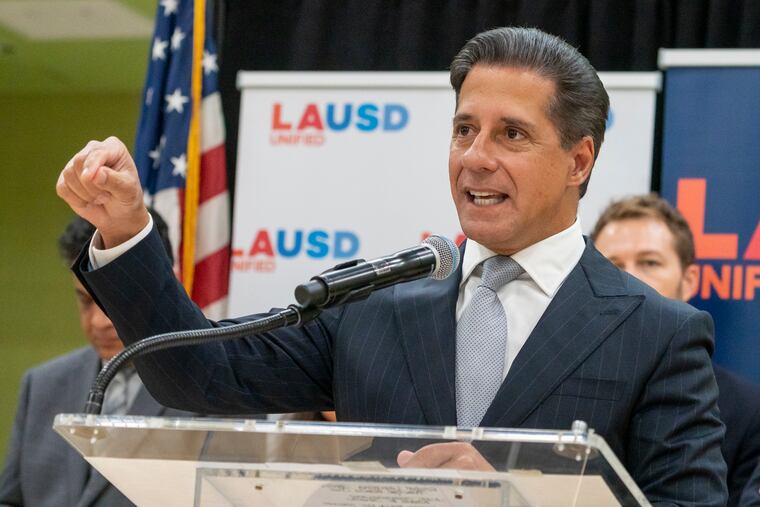How Los Angeles public schools attack chronic absence and what Philadelphia might try
Los Angeles schools superintendent launched “armies” of administrators and other staffers to fan out across the city, knocking on doors, doing quasi-detective work to find kids who were absent.

Brown is a professional in residence at Temple University’s Logan Center for Urban Investigative Reporting.
The mother of three had been struggling for so long that no one seemed to notice that her kids weren’t going to school.
When Alberto Carvalho knocked on the door to her Los Angeles apartment last August, he found that she had no working refrigerator and had been feeding her kids only canned food.
“She was living in just miserable conditions in a rat-infested apartment, trying to juggle work and the children,’’ said Carvalho, superintendent of the Los Angeles Unified School District. The youngest child had never been to school. The two others, middle schoolers, were missing school because they cared for their eight-year-old sibling while their mom worked.
» READ MORE: Chronic absenteeism is surging in Philly’s early grades, putting thousands more at risk of lasting academic harm
Carvalho’s visit to the family’s home was part of an ambitious districtwide outreach program called iAttend, in which the district identified families with students not attending school, went to their homes, and connected them with resources and services to help get their lives back on track and their kids back to school.
To better understand the obstacles faced by children who are chronically absent, Carvalho visited families himself and followed up with about 10 students regularly.
“We literally found hundreds of kids who were living in the shadows of society, some who had never enrolled in school and other kids who were chronically absent or were sent directly into the workforce,” he said.
“It was eye opening, heartbreaking and unacceptable in America that there is a lack of an effective system to keep track of children. The cracks were large, and if I sound angry, I am. The problem is not only massive, it’s the worst it’s ever been in our country,” Carvalho said.
In the wake of the pandemic, about 43% of Los Angeles’ 429,000 public school students were chronically absent — missing more than 10% of their schooling — and untold numbers of others never enrolled at all, he said.
“The narrative out there was that the kids of America had vanished, they had failed to return after the pandemic. For us, it was a race against time to stabilize the problems they faced, especially the mental anguish of isolation and the feeling of loneliness. Kids in America are facing a multifaceted crisis that I think adults have failed to respond to.”
» READ MORE: How to find out if your child is attending school and other Philadelphia attendance resources
Quasi-detective work
Carvalho, 58, knows poverty firsthand. Born in Portugal, the only one in a family of six children to graduate from high school, he came to the United States as an undocumented immigrant. He worked as a dishwasher and construction worker, and at one point he was homeless and lived for a while in the back of a friend’s U-Haul truck. He attended college in South Florida, and began working as a teacher in Miami, rising to become a principal and later superintendent of the Miami School District. He helped bring stability to the troubled district while establishing himself as an outspoken advocate for poor and disadvantaged students.
In February 2022, he took over the Los Angeles schools as they faced critical post-pandemic academic losses and enrollment declines. Within months, he launched what he called “armies” of administrators and other staffers to fan out across the city, knocking on doors, doing quasi-detective work to find kids who were absent.
The district also hired more attendance counselors and continued to conduct home visits. Depending on what they found, they assisted families with housing instability, food insecurity, and fear of going to school because of illness or violence in their communities. In some cases, the district provided transportation to get kids back in class.
Almost a year later, Carvalho said the district’s chronic absenteeism rate has declined to 32%.
“Whether it’s Miami, Philadelphia, New York or L.A., we need to provide kids with the support they need and deserve,” he said. “We still have a long way to go.”